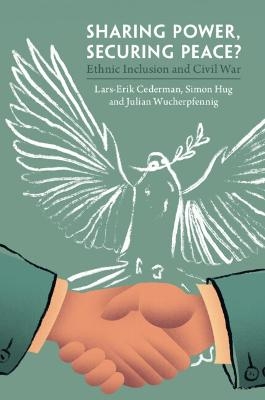
Sharing Power, Securing Peace?
Cambridge University Press (Verlag)
978-1-108-40655-0 (ISBN)
Does power sharing bring peace? Policymakers around the world seem to think so. Yet, while there are many successful examples of power sharing in multi-ethnic states, such as Switzerland, South Africa and Indonesia, other instances show that such arrangements offer no guarantee against violent conflict, including Rwanda, Yugoslavia, Zimbabwe and South Sudan. Given this mixed record, it is not surprising that scholars disagree as to whether power sharing actually reduces conflict. Based on systematic data and innovative methods, this book comes to a mostly positive conclusion by focusing on practices rather than merely formal institutions, studying power sharing's preventive effect, analyzing how power sharing is invoked in anticipation of conflict, and by showing that territorial power sharing can be effective if combined with inclusion at the center. The authors' findings demonstrate that power sharing is usually the best option to reduce and prevent civil conflict in divided states.
Lars-Erik Cederman is Professor of International Conflict Research, ETH Zürich. He is the author of Emergent Actors in World Politics: How States and Nations Develop and Dissolve (1997), co-author of Inequality, Grievances and Civil War (Cambridge, 2013, with Kristian Skrede Gleditsch and Halvard Buhaug), as well as numerous articles in scientific journals. Simon Hug is Professor in the Department of Political Science and International Relations, University of Geneva. His research has been published in leading outlets, including the American Political Science Review, American Journal of Political Science, Legislative Studies Quarterly, and the Journal of Conflict Resolution. Julian Wucherpfennig is Professor of International Affairs and Security at the Centre for International Security, Hertie School, Berlin. His research has been published in leading outlets, including the American Political Science Review, American Journal of Political Science, Journal of Politics, International Organization and World Politics.
1. Introduction; Part I. Theories and concepts; 2. Power sharing and conflict in the literature; 3. Key concepts and arguments of our approach; Part II. Analyzing the effect of power sharing on civil war; 4. Power sharing and civil war: Data and baseline models; 5. Contrasting formal power-sharing institutions and practices; 6. Endogenizing governmental power sharing and its effect on civil war; 7. The strategic logic of governmental power sharing and civil war; 8. The effect of territorial and governmental power sharing on civil war; 9. The strategic logic of territorial power sharing, secession and civil war; Part III. Power sharing and civil war in time and space; 10. The diffusion of power sharing; 11. Trends in power sharing and conflict; 12. Conclusions for theory and policy.
| Erscheinungsdatum | 17.08.2022 |
|---|---|
| Zusatzinfo | Worked examples or Exercises |
| Verlagsort | Cambridge |
| Sprache | englisch |
| Maße | 151 x 228 mm |
| Gewicht | 480 g |
| Themenwelt | Sozialwissenschaften ► Politik / Verwaltung ► Europäische / Internationale Politik |
| Sozialwissenschaften ► Politik / Verwaltung ► Politische Theorie | |
| Sozialwissenschaften ► Politik / Verwaltung ► Vergleichende Politikwissenschaften | |
| ISBN-10 | 1-108-40655-6 / 1108406556 |
| ISBN-13 | 978-1-108-40655-0 / 9781108406550 |
| Zustand | Neuware |
| Haben Sie eine Frage zum Produkt? |
aus dem Bereich


